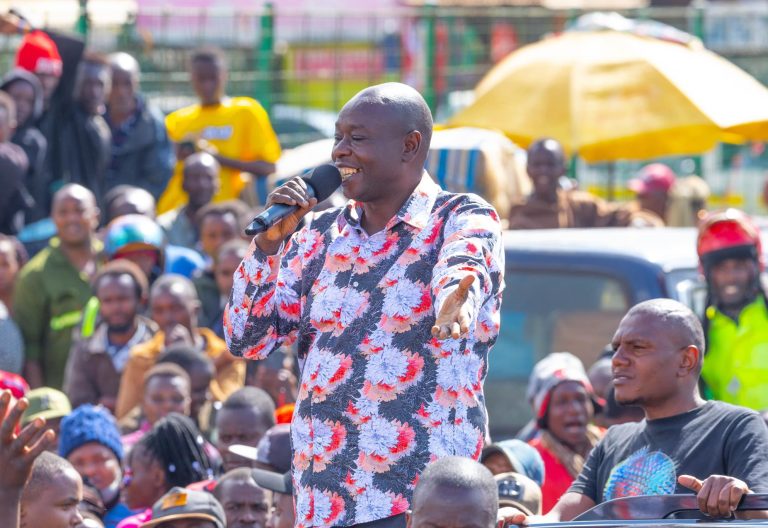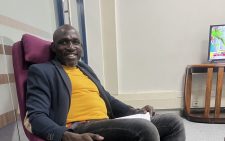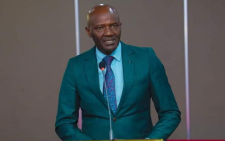Media has gone to bed with the politician

Former Deputy President Geoffrey Rigathi Gachagua is today a regular subject in the media, if not a guest.
When he was in power – or is it power itself? – Gachagua despised the media and stated so unapologetically.
It is probably a case of the shoe being on the other foot. No sooner had Gachagua and his then-boss, President William Ruto, ascended to power than the former Mathira MP started throwing all manner of brickbats at the Fourth Estate.
He spat on journalism without an iota of regret, insisting every now and then that he and Ruto did not need the media because they rode to power minus the support of the media anyway.
To date, Gachagua has not recanted his demeaning, scornful utterances. But he noticeably ensures that the media is present at each of his public events.
Interestingly, media practitioners treat Gachagua like a saint, the next sacred entity after Jesus and Prophet Mohammed.
In Kenya today, the politician is the most loathed, distrusted, cunning, corrupt, unfaithful, deceitful and disliked person.
It was therefore some kind of relief for the public when the Anglican and Catholic churches in Kenya banned politicians from giving speeches at their places of worship and funerals or announcing their donations and tithe.
The media welcomed the sanction as the right move in the right direction. But the same media has not done anything to call the politician to order.
Every morning and evening, all the leading radio and TV stations are hosting the same lying politicians they applauded the church for banning from their worship spaces, allowing the corrupt individuals to continue perpetuating falsehoods, rancour and hate.
It is very difficult watching television nowadays. In a family of six, I am the only one who still struggles to watch news. And that is because of my professional obligations. The others gave up long ago. They argue that news is full of lies and propaganda brewed by corrupt politicians.
It so happens that politicians are accorded so much space in both print and electronic media that no subject is ever discussed minus the presence and participation of the politician.
Very rarely will one stumble on a credible programme where quality prevails, like Thursday’s “News Gang” on Citizen TV, where issues are discussed maturely, precisely and insighgully minus a politician on the panel.
If only we could have more of such. It frustrating when a politician who knows nothing about climate change is hosted to discuss environmental matters.
This frustration runs in our media today every day in the morning, afternoon, and evening. I have never understood why the purveyors of news and information in Kenya today seem to be contented with this seamy way of doing things.
Back to Gachagua. The self-proclaimed ‘Truthful Man’ might be finding useful company today because of his personal frustration at the political level.
But was he wrong in his previous outbursts? It is no secret that Gachagua and Ruto won the presidency in 2022 against a strong storm staged by the mainstream media.
The Azimio candidate, in the person of former Prime Minister Raila Amolo Odinga was the unanimous preferred candidate of the Kenyan media. But still, with all the State machinery and support of a sitting President at his disposal, Raila lost to Ruto.
My question soon after the 2022 General Election was – and still is: Can Kenyan media shape the country’s opinion?
Can Kenya’s media fit into former US President Thomas Jefferson’s statement that “Were it left for me to decide whether we should have a Government without newspapers or newspapers without Government, I shouldn’t hesitate a moment to prefer the latter”?
In other words, can the media provide the country with direction in a moment of hopelessness and despair as Kenyans find themselves in presently? Can media give a sense of hope to the citizenry without clutching on the coat-tails of a politician?
What happened in Kenya in 2022 is not dissimilar to what took place in Zambia earlier.
Kenya and Zambia have gone down in history as the only countries where the mainstream media gangs up, whether willingly, through coercion, or inducement, to vigorously campaign for the eventual loser in a presidential contest.
In Zambia’s case, in August 2021, the State forced the entire mainstream media to back incumbent Edgar Lungu, who was defending his presidential seat against the opposition’s candidate Hakandile Hichilema.
They did exactly that, releasing opinion polls every day that painted Lungu as the overwhelming outright victor with over 90 percent of the vote.
The electorate did not buy that propaganda. When elections came, Lungu lost to Hichilema, who had amassed 57.4 percent of the vote against the president’s 37.3 per cent.
In Kenya’s situation, the mainstream media promoted Raila’s candidacy as the foregone winner, though with a smaller margin. Journalists of name and repute placed their bets on Raila as the next president.
As in Zambia, the Kenyan voter disagreed with the predictions of the media. They elected someone else – William Ruto of the Kenya Kwanza coalition, though with a tiny margin.
The Zambian and Kenyan experiences pose a question as to whether the public trusts the media.
Last Saturday, the largely Vuvuzela Forum that is the Kenya Editors Guild (KEG) was to hold elections for it’s president and other offices.
I am not a member of the Vuvuzela Forum. But I was looking forward to the polls because I had watched a very robust and invigorating debate between the two candidates for president and felt that there was something new in the air for Kenyan media.
But the elections were postponed. And the vuvuzela tunes continue to rend the air.
I am concerned that the Kenyan media is fast losing public confidence. This worries me when I see journalists not knowing to and embracing a politician near a bedroom of sin and improprieties.
Like Thomas Jefferson, I trust the media far more than the government. It should worry us all when the media and the government start playing in the same league. And dancing to the same vuvuzela tunes.
The author is the Revise Editor with the People Daily newspapers













